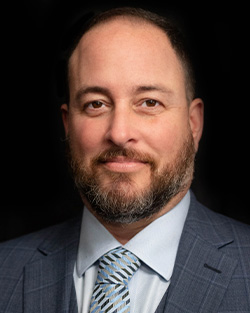September 12, 2022
Dealing With Difficult Providers
- by Sean Weiss, Partner, Vice President of Compliance
“Convey Your Message Effectively Without Offending”
“Yesterday, Dr. Smith was in the breakroom, and I told her that she can’t keep billing 99204 and 99214 for every single patient visit, and she told me the last time she checked, it was her name with M.D. behind it and that I should focus on getting the money in the door!” Sound familiar? The fact is, everyone has one, and everyone is frustrated finding a way to deal with “The One” … I’m talking about the difficult medical provider! However, put yourself in their position and ask yourself this question: How would you feel if you spent the better part of your adult life in school mastering the “Art” of healing only to enter the job force and realize everything you learned in school has been turned into policies tied to reimbursement by a bunch of bureaucrats and non-clinicians? Continuous changes tied to ICD-10CM, modifiers, procedure coding, evaluation & management services, MACRA, MIPS, audits, call coverage, staying up to date with the latest drug therapies and disease/injury treatments, maintaining CMEs, malpractice suits, fair market value, HIPAA, OSHA, CLIA, OIG compliance, whistleblowers, and the list goes on and on…
I think you see where this is headed. In my 28 years of working in healthcare, there’s no doubt that 95% + of all providers are just trying to do the right thing when it comes to all the business stuff… when someone who is considered a “Suit” or someone from a coding/compliance department takes up time on their already behind schedule to tell them they are doing something wrong; they are less than willing to see you, and when they do, often times they are aloof or even a bit rude.
It takes a special person to provide education to a medical provider, and your approach is as important, if not more so than the content you are trying to deliver. I have spent more than 2-decades of my career watching auditors, billers, coders, and compliance officers deliver education to providers, and often it seems like they are trying to impress them with their ability to use fancy words or clinical terms (oftentimes mispronouncing them) or using them in the wrong context. I have sat through sessions that were so difficult to listen to that providers were yawning, looking at something on their phone, nodding off, or concentrating on the next bite of food entering their mouth and not hearing one word the person was trying to deliver as a message. Don’t be this person, be the person they need you to be, which is their subject matter expert in your given area of specialization! If you are not a clinician, don’t act like one. There is nothing worse than having to listen to some “blow-hard” who loves to hear themselves talk, and more often than not, what they have to say means little to nothing. However, worse is someone who tries to provide talking points on something they have not independently verified only to hit a wall when one of the providers did their homework and is better informed than they were. Not having the facts right will cost you your credibility, and once that is gone, it’s gone.
Below are my Dos and Don’ts of providing education to medical providers:
Dos
- Deliver the facts based on timely, accurate, and authoritative information… keep opinions to yourself.
- Providers should feel as if you are their advocate and that you are on their side.
- Don’t go in empty-handed… see number 1 above.
- If there’s a report, have a copy for the provider(s). Please make sure it has been proofread and is free of typos, spelling errors, grammatical and punctuation mistakes, etc.; nothing is worse than getting called to the carpet.
- Keep the meeting to 30 minutes or less unless the provider is driving the increase in meeting time with questions, etc.
Don’ts
- Don’t go off on a tangent or get on a soap box. Stick to the facts and keep yourself on track.
- Don’t be late!
- Don’t be wrong with your analysis… see number 1 under “dos”.
- Don’t guess at an answer to try and look smart. Be 100% certain based on authoritative information.
- Don’t pretend to be something more than what you really are. Be proud of your role in the organization and of the credential(s) you’ve earned.
When meeting with providers, begin your message, especially if it is not a great message, by saying, “I appreciate you taking the time to meet with me today regarding __________. I know you are very busy, so I want to provide you with the facts related to my findings, the supporting documentation from authoritative sources, and answer any questions you have to ensure you are comfortable with the process moving forward to ensure compliance with internal and payers guidelines.” This opening statement allows a couple of things… First, it allows you to set the agenda and tone for the meeting in a decisive manner. Second, it shows the provider you are confident and secure with what you’re doing and gives them a level of comfort and confidence in your abilities/skills.
Keep in mind, that the above approach may not work every time because there are those providers who just have to always vent and complain… so when this happens, allow them their rant for a few moments, uninterrupted, and when there is a natural break in their statement, nicely interject “I completely understand and can feel your frustration(s). However, I hope you understand I am on your side (I work for you), and the truth is, I don’t set policy, I simply work to make sure we remain compliant with those policies to avoid unnecessary scrutiny. If you give me just a few minutes, I think I can help you through this process, and together we can develop something that works for you and gets you back to being a medical provider and brings peace of mind to you, the compliance department, and counsel.” This usually works like a charm because it shows compassion for their frustration but also reinforces the fact that their personal feelings on how unfair something is, in the grand scheme of things, are irrelevant because if we are out of compliance, how we feel about something is immaterial.
By Sean M. Weiss, Partner, Vice President, and Chief Compliance Officer

Sean M. Weiss is a Partner with DoctorsManagement and serves as the Vice President of Compliance. Sean is a nationally recognized speaker and regulatory compliance officer with more than 28 years of service in healthcare, working with and for some of the Nation’s largest and most respected health systems. Should you have questions or are wanting to speak with Sean regarding his services in your organization, email him at [email protected]. Visit us online at www.thecomplianceguy.com, or contact him at 800-635-4040.

























